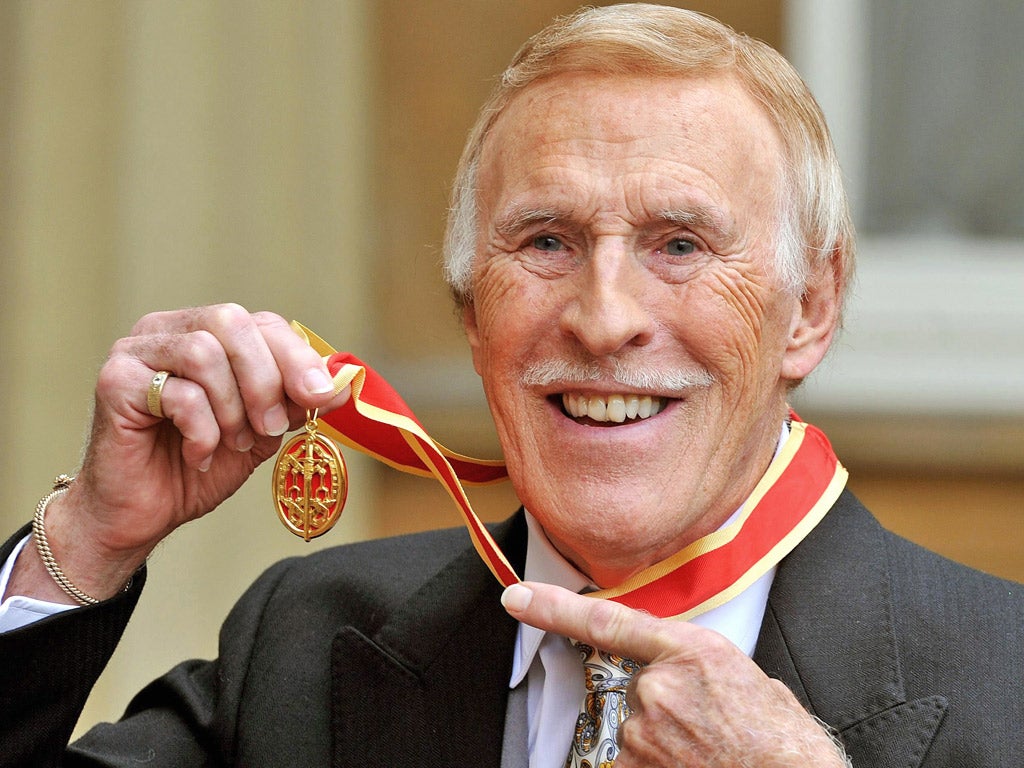Britain's honours system set for shake-up, with ministers given powers to 'fast track' nominations for knighthoods and other awards

Ministers are to be given the power to ‘fast track’ nominations for knighthoods and other awards as part of plans to radically shake-up of Britain’s ancient honours system.
Under proposals, discussed by the Cabinet, ministers would be able to circumvent civil service vetting procedures and recommend candidates for awards directly to the independent Honours Committee.
Significantly if their recommendations are rejected the Committee would have to contact the minister concerned to explain and justify their decision.
However the move is facing resistance from some senior officials who fear it will politicise the honours system and insist that ministers must follow the same procedures as charities and members of the public who want to nominate individuals for awards.
Over recent months growing numbers of senior Government figures expressed concern that political nominations for CBE, OBEs and knighthoods were being thwarted by officials.
Among concerns express by Tory ministers include:
• The failure of the Honour Committee to award a knighthood to the Olympic gold medallist Mo Farah because “the rules” state that recipients must be in receipt of a lesser honour first.
• The award on an MBE to a civil servant in the Department of Education who had responsibility for recommending people for honours. “That wasn’t even gongs for the boys, it was gongs for the boys who hand out the gongs,” said one source.
• A long running campaign by a minister to get an official awarded for his work implementing a high-profile Government policy was repeatedly thwarted by senior officials in his department. At one stage he was told if his nominee got an award it would result in another deserving official who was about to retire being deprived of his gong.
Under current rules ministers have the right to nominate individuals for New Year’s and Birthday Honours but their recommendations can be vetoed by senior departmental officials without having to explain their decision.
The new proposals, discussed by the Cabinet, would allow minsters to circumvent departmental procedures and have their nominee directly considered by Honours Committee which includes a number of independent ministers.
According to ministerial sources when the issue was discussed a large number of ministers spoke out in favour of the changes and some wanted to go even further and take overt political control of the honours process.
“There’s been a complete civil service takeover of the honours system which has cut politicians out,” said a senior Government source.
“It started as a reaction to the Blair years but there is now a realisation that it has gone far too far. We have replaced political control of the honours system with control exercised by unelected and unaccountable bureaucrats.”
But some senior MPs have voiced concerns that the new system must be transparent.
Bernard Jenkin, chairman of the influential Public Administration Committee said: “Any proposals to increase ministerial influence must be open, transparent and explicit so Parliament is fully informed of what is going on.”
A Cabinet Office Spokesman confirmed that Sir Bob Kerslake, the head of the Civil Service was currently carrying out at “quinquennial review” into the honours system.
The plans for change have been fed into Sir Bob Kerslake, the head of the civil service, is conducting ‘quinquennial review’ of the system, which is due to be sent to Buckingham Palace for approval this Spring.
He has accepted that ministers have the right to feedback but is resisting calls for them to bypass the civil service bureaucracy on the grounds that this would politicise the system.
A civil service source defended the mandarins, pointing out that honours for domestic civil servants and quango chiefs account for just one in 11 honours. When diplomats and members of the Armed Forces are included, 18 per cent of honours go to public servants.
“The vast majority are people who do charity or voluntary work, often in their local communities,” they said.
“We reject the criticism that the government hand out gongs to people for long service. All honours are given to people on their own individual merits. There is no rubber stamping.”
Subscribe to Independent Premium to bookmark this article
Want to bookmark your favourite articles and stories to read or reference later? Start your Independent Premium subscription today.

Join our commenting forum
Join thought-provoking conversations, follow other Independent readers and see their replies